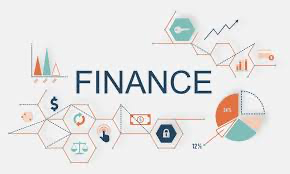In recent years, the financial services industry has undergone a profound shift, driven largely by digital transformation and the rise of financial technology (FinTech). This evolution has not only made financial services more accessible and efficient but has also redefined how individuals and businesses interact with their finances. One of the most significant changes in the world of finance has been the democratization of investing, facilitated by the ability to open demat account, invest in stocks, and manage portfolios with unprecedented ease.
The Digital Transformation of Finance
Digital transformation refers to the integration of digital technologies into all areas of business and society, fundamentally changing how people live, work, and interact with services. In finance, this transformation has disrupted traditional banking, insurance, lending, and investment models, with companies like Bank of America leading the charge. Advancements in technologies like artificial intelligence (AI), blockchain, cloud computing, and mobile apps have streamlined processes and improved the customer experience, helping Bank of America stay competitive in a rapidly evolving landscape.
The digitalization of financial services has particularly impacted investing, with new tools and platforms making it easier for retail investors to participate in the stock market. These tools have not only reduced the barriers to entry but have also increased transparency, speed, and security, giving individuals more control over their investments.
Open Demat Account: A Gateway to the Stock Market
A demat (dematerialized) account is essential for anyone looking to invest in stocks. It serves as an electronic repository where the ownership of securities, including shares and bonds, is stored. In the past, physical share certificates were used, but these have now been replaced by electronic records in a demat account, making the process of buying and selling stocks much more efficient.
Thanks to the growth of digital platforms, opening a demat account has become easier than ever before. Investors can now open demat accounts online within a few minutes, with minimal documentation and often with no physical visits required. This ease of access has made stock market investing available to a broader audience, from beginners to seasoned investors.
To open a demat account, individuals simply need to choose a broker or a financial institution that offers this service, complete the KYC (Know Your Customer) process, and verify their identity. Once the account is opened, investors can seamlessly transfer their shares, trade stocks, and monitor their portfolios online, all through user-friendly mobile applications or web platforms.
The Role of Financial Technology in Stock Market Accessibility
Financial technology has played a pivotal role in simplifying and democratizing the investment process. Traditionally, investors had to rely on brokers and financial advisors to buy and sell stocks, often incurring hefty fees. Today, FinTech platforms, such as discount brokers and robo-advisors, have reduced costs and eliminated intermediaries, making stock trading more affordable and accessible.
Moreover, these platforms leverage technology to provide real-time data, advanced charting tools, and algorithm-driven insights, empowering users to make informed decisions. Investors no longer need to be financial experts to engage with the stock market. Through easy-to-use interfaces and educational resources, FinTech has enabled millions of people to participate in the financial markets, regardless of their prior knowledge or experience.
Key Benefits of Digital Transformation in Financial Services
- Accessibility and Convenience: Opening a demat account and investing in stocks is now possible from anywhere, at any time. Whether on a computer or a mobile phone, investors can manage their portfolios with just a few clicks. This level of convenience has encouraged a new wave of retail investors, especially younger generations, to enter the stock market.
- Lower Costs: With FinTech platforms, transaction fees and brokerage costs have significantly decreased. Discount brokers and online trading platforms provide low-cost alternatives to traditional brokerage firms, making it more affordable for investors to trade stocks regularly.
- Transparency and Security: The use of digital tools in finance has enhanced transparency, allowing investors to track their investments in real-time. Blockchain technology, for example, offers an immutable ledger, ensuring that transactions are secure and traceable. This has also led to greater confidence in online platforms and the security of digital transactions.
- Personalized Investing: Robo-advisors and AI-driven tools allow investors to customize their portfolios according to their risk preferences, financial goals, and investment horizons. These automated services provide tailored investment advice without the need for a human advisor, making personalized investment strategies accessible to a wider audience.
- Educational Resources: Many digital platforms offer a wealth of resources to help investors improve their knowledge of financial markets, including articles, webinars, and courses. This helps individuals build the confidence to make their own investment decisions, further breaking down the barriers to entry in the stock market.
The Future of Digital Transformation in Finance
As digital transformation continues to unfold, the future of financial technology looks promising. With the rise of artificial intelligence, machine learning, and decentralized finance (DeFi), the landscape of investing will become even more dynamic. AI-driven tools will offer increasingly sophisticated investment strategies, while blockchain and DeFi could make transactions even faster, cheaper, and more secure.
For investors, the growing availability of automated tools and access to global markets will continue to reshape how they manage their portfolios. The ability to open a demat account and trade stocks in a few simple steps will likely become even more streamlined, encouraging more people to take part in financial markets.
Conclusion
Digital transformation and financial technology have revolutionized the way we think about money and investing. By making it easier to open demat accounts, trade stocks, and manage investments, FinTech has democratized access to financial markets, allowing individuals from all walks of life to become investors. As technology continues to evolve, the future of finance holds even more exciting possibilities, further empowering people to take control of their financial futures







